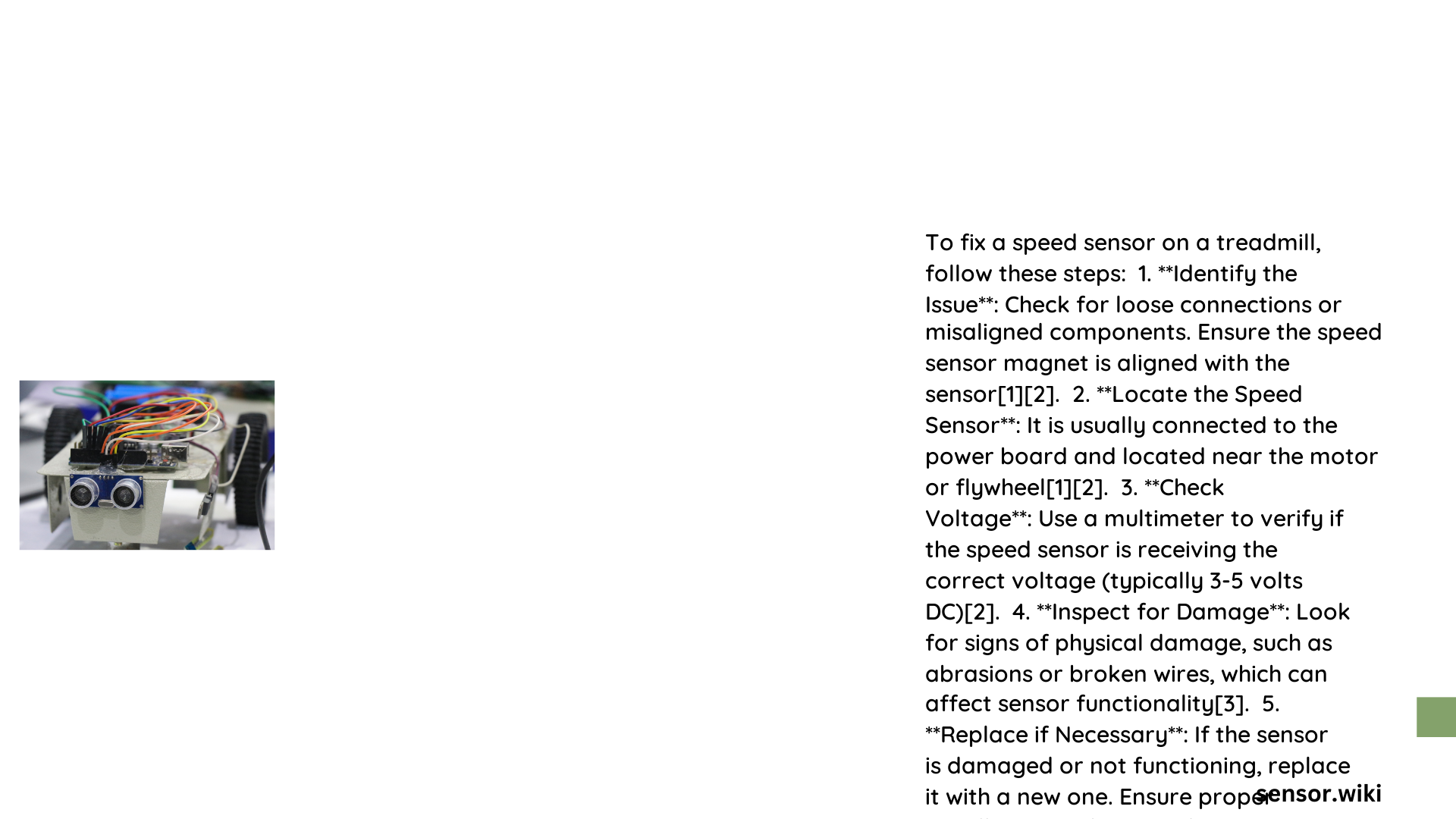Treadmill speed sensors are critical components that monitor belt rotation and provide accurate speed feedback. When malfunctioning, they can cause erratic performance, display errors, and compromise workout tracking. This comprehensive guide will walk you through precise diagnostic methods and repair strategies to restore your treadmill’s performance efficiently and safely.
What Causes Speed Sensor Failures?
Speed sensor problems typically emerge from several key factors:
- Physical Damage
- Wire fraying
- Connector corrosion
-
Mechanical stress
-
Electrical Issues
- Loose connections
- Signal interference
-
Voltage fluctuations
-
Environmental Factors
- Dust accumulation
- Moisture exposure
- Temperature variations
How to Diagnose Speed Sensor Problems?

Diagnostic Checklist
| Symptom | Potential Cause | Recommended Action |
|---|---|---|
| Inconsistent Speed | Sensor Misalignment | Realign and Adjust |
| No Speed Reading | Broken Wire | Replace Sensor |
| Erratic Display | Loose Connections | Check Wiring |
What Tools Do You Need?
Essential tools for fixing speed sensor treadmill include:
- Multimeter
- Allen wrench set
- Screwdriver
- Electrical tape
- Replacement sensor (model-specific)
Step-by-Step Speed Sensor Repair
Preparation Phase
- Unplug treadmill completely
- Remove motor cover
- Locate speed sensor assembly
Inspection Process
- Examine sensor mounting
- Check wire continuity
- Verify connector integrity
Replacement Procedure
- Disconnect existing sensor
- Remove mounting screws
- Install new sensor
- Reconnect wiring
- Test functionality
Pro Tips for Successful Repair
- Always match replacement sensor to exact model
- Maintain 3-5mm gap between sensor and magnet
- Use manufacturer-recommended parts
- Perform regular maintenance
Common Mistakes to Avoid
- Forcing connections
- Ignoring manufacturer guidelines
- Using incompatible replacement parts
- Skipping continuity testing
When to Seek Professional Help
Consider professional repair if:
– Complex electrical issues persist
– Lack of technical expertise
– Warranty concerns exist
– Advanced diagnostic tools required
Maintenance Recommendations
Preventive Strategies
- Clean sensor quarterly
- Check wire connections
- Lubricate moving parts
- Monitor performance consistently
Technical Specifications
Typical Speed Sensor Characteristics:
– Wire Gauge: 24 AWG
– Voltage: Millivolt range
– Operating Temperature: 32-104°F
– Magnetic Sensitivity: High precision
Troubleshooting Quick Reference
Immediate Diagnostic Steps
- Visual inspection
- Continuity test
- Connector examination
- Sensor alignment check
Cost Considerations
| Repair Type | Estimated Cost |
|---|---|
| DIY Repair | $20 – $50 |
| Professional Service | $100 – $250 |
| Replacement Sensor | $30 – $100 |
Final Recommendations
Successful fix speed sensor treadmill repair requires patience, precision, and systematic approach. Always prioritize safety, follow manufacturer guidelines, and don’t hesitate to seek professional assistance when needed.
